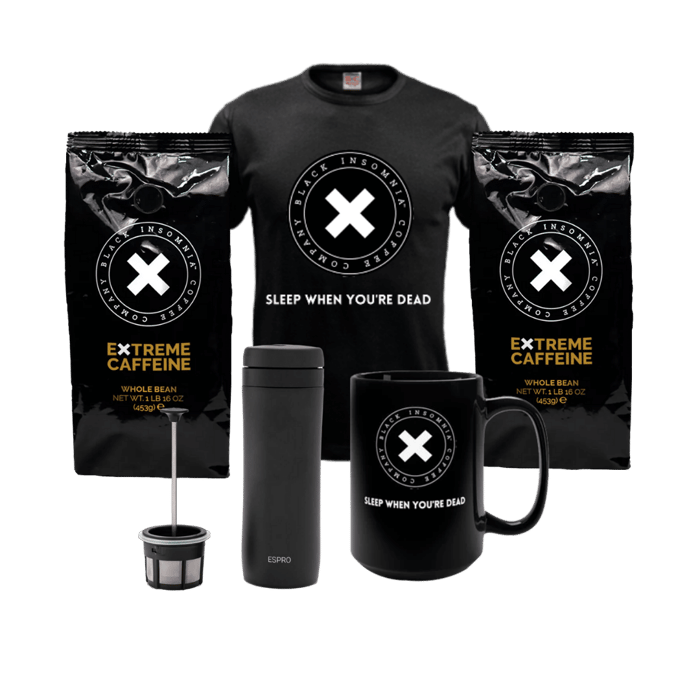
The old days of keyword stuffed SEO articles are dying a slow, horrible death. And thank God, am I right?
Now, it’s all about content creation.
And that “trend” shows no signs of stopping.
Because it’s not a trend.
As a marketing strategy for starting a new business, content never “gets old”—because there is always going to be an audience for it.
While other marketing strategies come and go—audiences sour on some, become indifferent to others, and get downright troll-like when they see others—content marketing isn’t going to go anywhere.
Think about it.
Can you picture a time where content becomes a turn off for audiences?
That’s like saying, “people who go to restaurants might get sick of ‘food’ one day.”
“People who drink coffee might get tired of ‘coffee.’”
“People who use phones might get sick of… ‘the phone.’”
Yeah, not happening.
When you’re starting a new business, content marketing is one of the quickest ways to get customers—simple as that.
How? Let’s take a look.
Content Is ____
If you’re starting a business and you’ve done your research, there’s no doubt you’ve come across the phrase “Content is king” at least three or four billion times.
Well, there’s a good reason it’s said that often.
Content marketing does more than just the material—attracting visitors, convincing visitors to become customers, potentially attracting investors.
But don't just create content for the sake of creating content.
Provide customers with something of value to them, and they’ll come back.
By wielding content marketing creatively, you can build and shape the brand image of your new business exactly the way you want it to be seen.
This is a less tangible benefit that can pay massive dividends for years to come. Example:
Visitors’ perception of your brand as a “luxury brand” can let you charge significantly more for your products or services.
Anyone who’s sampled any of the alcohols out there that try too hard to make you think they’re a luxury brand can attest: a luxury brand’s image, often at least, has more to do with marketing than any aspects of the product.
This isn’t to say it’s a tactic businesses should use, but it definitely demonstrates the power content marketing can have.
A more ethical, perhaps, approach is using content marketing so that the new business you just started can more quickly be seen as an authority in its industry.
Brand awareness, and eventually brand authority, are both things you can ultimately achieve almost entirely through content marketing.
What about SEO?
Yes, with a developed overall content strategy such as the pillar/cluster model, all that content will help you rank higher in search engines.
But while ranking in Google is still super important, the old SEO-focused models of content creation are over.
Finished.
Done.
Again, content for content’s sake is no longer a thing.
Consumers don’t want to land on your page and when they land on your page see an article about landing on your page that uses the phrase land on your page 400 times when they land on your page. (I'm sure some prehistoric keyword density tool is very proud of that paragraph - but your users and Google are not - please give up the "density" practice).
Consumers don’t want keywords or long-tail key phrases. Again, they don’t want content for content’s sake.
They want content that they can use.
Content they can get some information out of.
Content that entertains them.
Content that solves their problems.
When you’re first starting a business, you need to do the work to come up with at least one “buyer persona.” An avatar for your ideal customer/client.
Identify what kind of content assets can best serve that person’s unique needs. If in doubt—find them and ask them!
Content Starts Building Relationships (and Trust)
Besides the brand awareness, authority, and SEO benefits, content creation also helps your new business begin to build a relationship with your fledgling online audience.
By simply interacting with customers, creating new content that answers their questions, responding to their criticisms (even the truly obnoxious ones), you’re demonstrating that your business cares about its customers.
Unless your target audience is newborn babies, everyone in your audience has been burned in the past. Your audience is going to come at you from an untrusting angle.
You need to prove that you’re trustworthy, and you’re not out to scam them.
When you create value (content) for them, without asking for anything in return, your audience is more likely to trust your business. (And more likely to give you something in return.)
Ultimately, when your content shows up at the right place and at the right time with the right audience, it'll improve your brand's reputation. The more quality content customers see, the more likely they will have a positive association with your company.
Keep Your Business Relevant by Keeping Your Content Relevant
While content as a strategy never goes out of date, individual content can and does. Constantly. So you need to make sure your content stays relevant (i.e. valuable and interesting for your business’ online visitors).
Have your competitors be the ones who last provided valuable information to their visitors sometime in 2011.
While older content can be updated and repurposed to increase its life, conversions become more likely when websites/blogs/article libraries are regularly updated with relevant info.
There is, of course, evergreen content—that prized type of content that stays relevant for years.
For example, a guide to how to tie your shoes, make Turkish coffee, or use a French Press.
All of that content could certainly be considered evergreen.
Or, you know, when you’re looking for the answer to some obscure question and end up on an 80,000 word stickied forum post from 2006 that’s been edited 83 times?
I’d call that evergreen.
But just like with trees, “evergreen” doesn’t mean you just let something sit and never touch it again.
Evergreen trees still need regular water, pruning… and the tallest, fullest evergreens do best with some fertilizer and soil amendments.
Evergreen Content ≠ Abandoned Content
If you think abandoned content ages like fine wine, it doesn’t. If you mean it turns into vinegar… much of it does. (Sorry.)
See any tweet from 2013 or earlier for an example of content that doesn’t age well.
Fortunately, unlike those mildly problematic tweets you sent out during the subprime mortgage crisis, you can update your website content.
Don’t let your website’s blog feel like a Circuit City in 2009 (“This is still in business? Wow. Those CD players over there are pretty dusty looking.”)
Keep providing value to potential visitors that benefits them now, not five years ago, and they’ll thank you for it.
(With money!)
This natural flow of things works for every business model, from custom ice tray manufacturers to beauty blogs to superyacht management firms. It’ll work for yours.
While evergreen content is something you definitely want to shoot for, when you’re just getting your business off the ground, you have license to stay ultra-current. The evergreen stuff can come later.
Find out what’s relevant to your customers today. Get some content created that answers their needs—and even more importantly for your new business, get a strategy to structure and deploy all that content.





